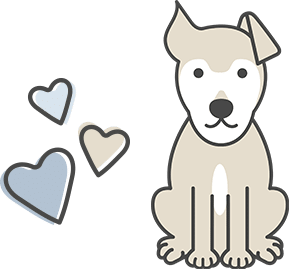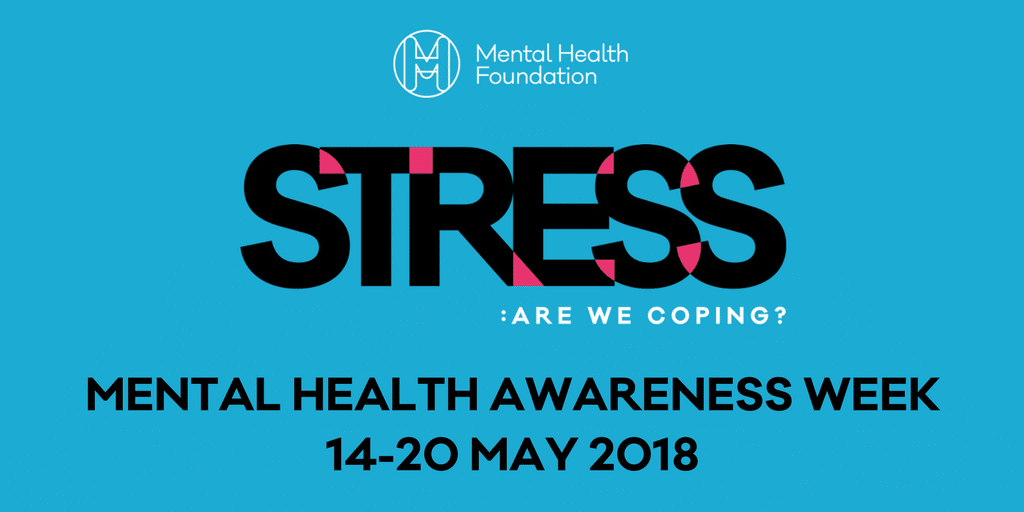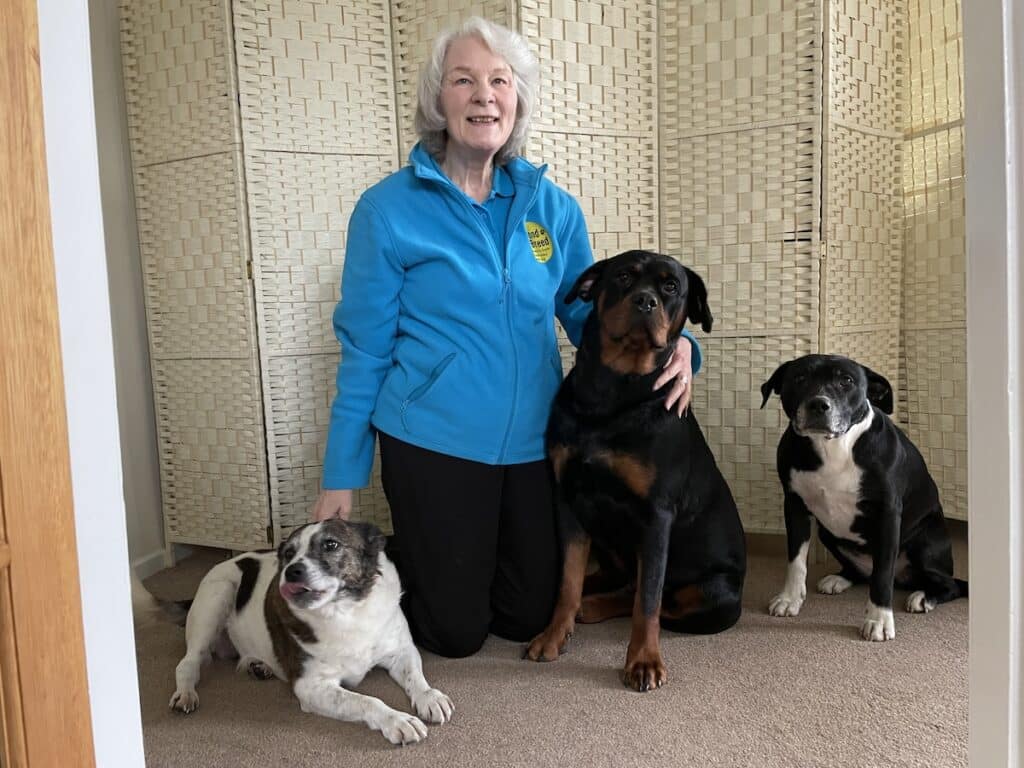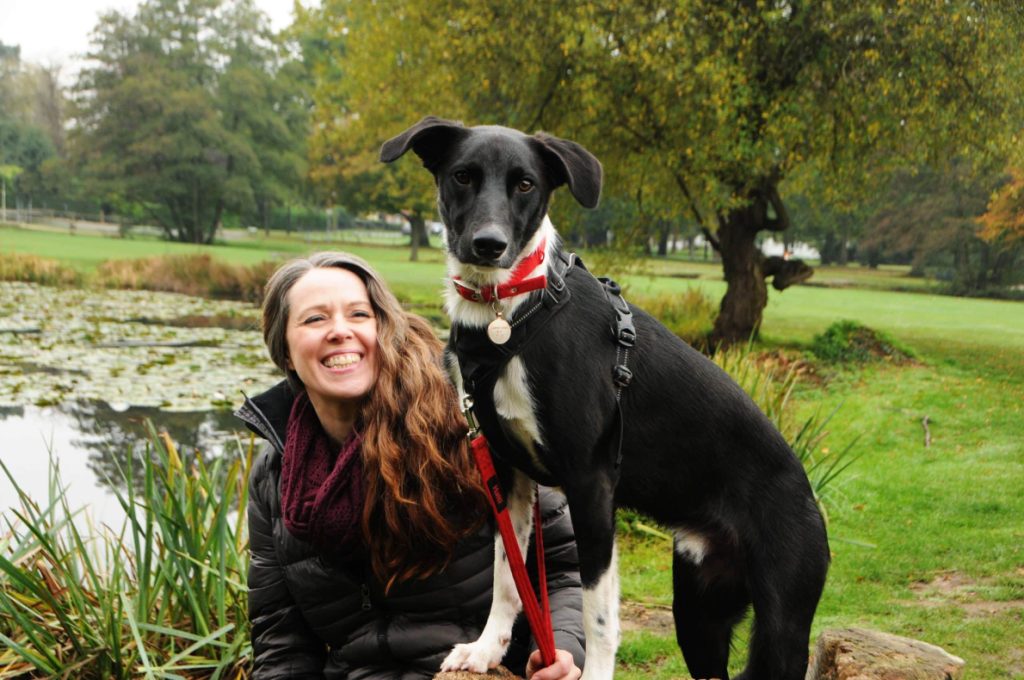It’s Mental Health Awareness Week and if you ask any pet owner if their animal helps them emotionally the answer will be a resounding ‘Yes!’
The most recent published report into the impact of pets on mental health by Dr Helen Brooks of The University of Liverpool found animals reduced stress, improved quality of life and promoted social interaction for their owners.
“Pets by provided acceptance without judgement, giving unconditional support, which they were often not receiving from other family or social relationships,” said Dr Brooks.
The therapeutic visits arranged by charity Pets As Therapy to residential homes, hospices, hospitals, schools and prisons mean thousands of people are given a lift each week.
The volunteers and their cats and dogs bring joy and comfort to people who aren’t able to have a pet of their own but enjoy spending time chatting to and stroking their animal.
In America, Emotional Support Animals are recognised in the same way as assistant and service animals are here. There’s cases of dogs, cats, ducks and even pigs going on flights to comfort owners.
This year, the focus for Mental Health Awareness Week is stress. A recent report by the Mental Health Foundation found 75% of people felt ‘overwhelmed and unable to cope’ due to stress.
Thankfully, our furry friends can help. I spoke to four owners about the emotional benefits their pet brings and shared my own experience too.
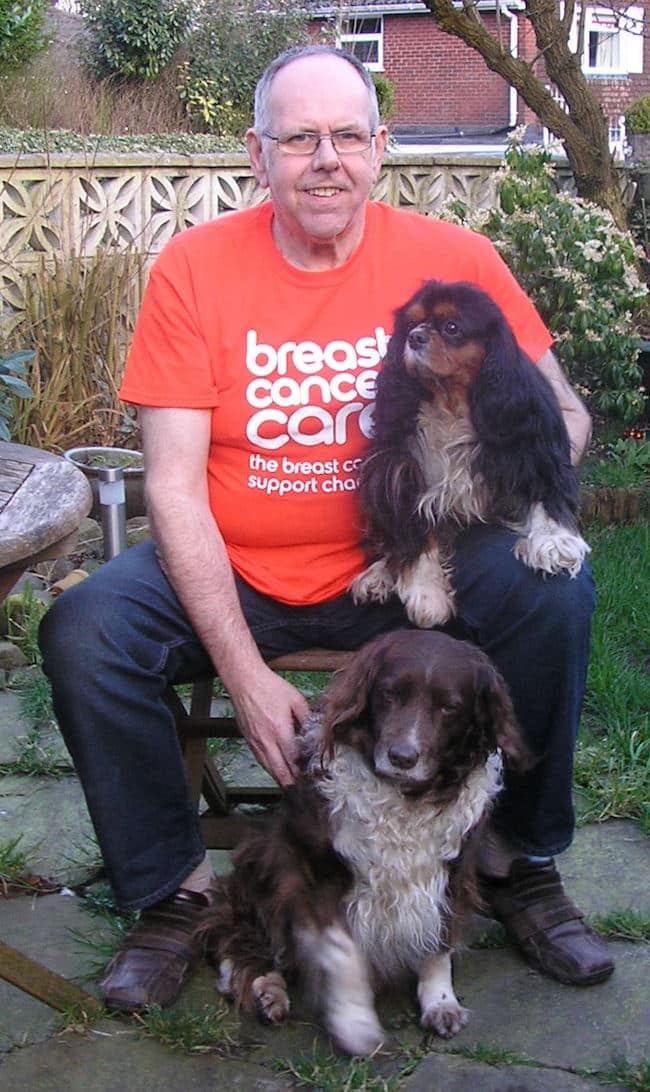
Dave Beevers, 63, a newspaper editor from Bolton and dogs Cassie and Bonny
“Everything about having a dog improves your emotional wellbeing and mental health when life is going well.
“When tragedy strikes as it did with me when I lost my wife Diane in February 2013 their companionship and presence was a positive counterbalance to the grief.
“We had been together for 20 years and she had a long battle with cancer having been diagnosed in 2006.
“Cassie and Bonny needed me, which gave me an immediate focus in the days following Diane’s death. At the time I was massively overweight and struggling with mobility.
“Diane’s dying wish was that I took care of my health so I could be there to the girls all the exercise they needed and having them inspired me joining my local gym.
“Then I started running. At 24 stone it wasn’t easy. I started with a 5km, then a 10km, then a half marathon, then, just over a year after losing her and ten stone lighter, I did the Rotterdam marathon to raise money for Breast Cancer Care.
“I’ve since started motivational speaking and a blog, Running With Diane, trying to inspire others and help those going through the same as I did.
“I did my best to support the girls as they were grieving too. They had spent every day of their lives with Diane. This was our loss, not just mine and the three of us were going to help each other.
“Sadly we lost Cassie earlier this year. She was 16, and illness and deteriorating sight and mobility meant she was in a lot of pain and it was kindest to let her go. I whispered to Cassie as I cradled her, ‘Find Mummy and wait for us there.’
“Bonny and I are helping each other cope. Cassie was a big part of my life, but Bonny never knew a single day without her big sister in it. We need to lean on each other to get through it.
“I’m lucky in that I have never suffered from stress – maybe it’s having dogs around that has kept me stress-free – another thing to thank them for.”
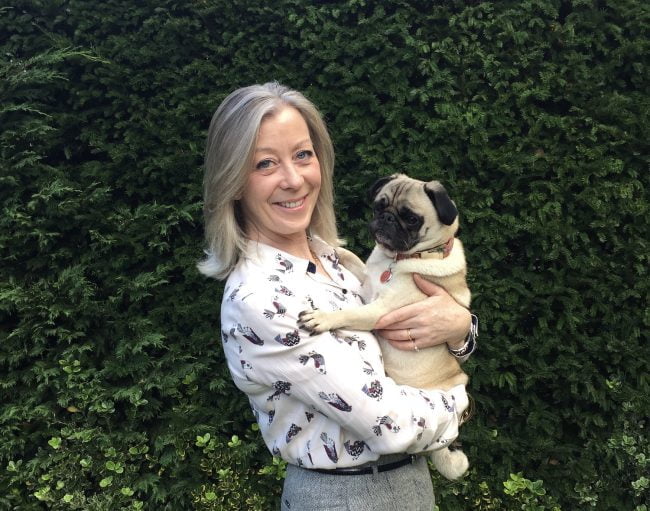
Cate Archer, a former special needs teacher from London, and Doug
“I learned how pets can help us emotionally when Doug came into my life. We had dear family member who was very poorly and thought having a dog would reduce the awful feelings of loneliness and isolation that come with long term chronic illness.
“It was felt a little dog would bring more comfort. As a carer of someone so very precious, I learned so much. I hadn’t quite appreciated how someone poorly can feel so strongly that they don’t want to be alone but don’t want to listen to anyone or talk to them either.
“A companion animal is the most perfect companion! They ask nothing of you and their love and care is without judgement, stigma or condition. The pet allows a poorly person to feel as normal as their condition allows.
“When caring for someone very special, knowing that this beautiful bond is so healing has been of enormous comfort to me. It also allowed me, as the carer, much needed respite to re-charge my batteries and find the strength and resilience needed to sustain nursing someone I cared for so deeply.
“Doug was everything we could have wished for. When this very special family member got better, we felt he had so much love to share and that’s how he came to be a Pets As Therapy dog and he has a website too – Doug The Pug Therapy Dog.
“A woman we work with in the mental health unit told how Doug allows her ‘to get out of her own head’ and ‘put her troubles to one side’.
“At the hospice a friend who has MS and is blind says Doug helps her ‘enjoy the moment’ and ‘not reflect too much on the past, what might have been, and what the future holds.’
“We can’t change the lives of these people – but we can help give them strength and resilience.
“Sharing time with a companion animal is a great stress reliever. It reduces blood pressure and suppresses the body’s production of the stress hormone cortisol.
“The body starts to produce the feel good hormone oxytocin – which then goes on to suppress any further production of the stress hormone so it’s Win, Win!”
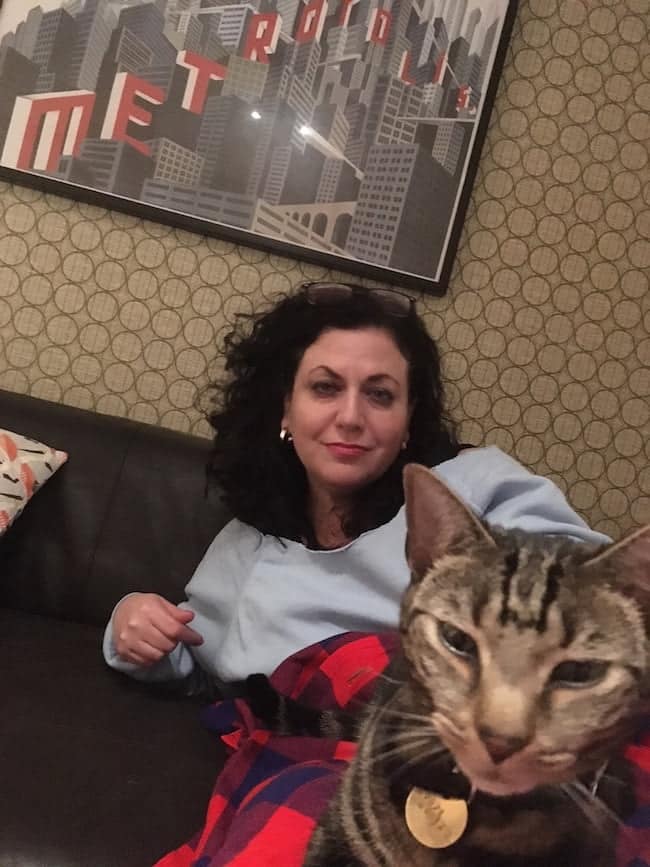
Leslie Sinoway, a PR from London and Minnie
“Two years ago I was signed off from work following a combination of a cancer scare in my family, an extremely upsetting incident that happened while I was working abroad on the other side of the world and a cycle of extreme insomnia due to chronic pain.
“I was devastated as I’d always prided myself on being able to throw myself into my work and to just carry on. Everyone around me could see that I was falling apart – apart from myself.
“At first I just didn’t want to do anything at all but sit on the sofa, watch Netflix and be with my cat. Somehow she knew I needed her to be there and it was a huge comfort. But in time, I began going to yoga classes, seeing some art, cooking and finding myself again.
“My friends and family helped me immensely too – but when I was by myself in the house it was Minnie that was there and I truly believe she helped. Caring for a small creature gives back immeasurable joy.
“They make you laugh, they astound you with their cheekiness and naughtiness. Minnie knows when I am upset, stressed, ill or indeed just about to come home. I am greeting by a miaow most evenings.
“Minnie senses when my husband Simon is stressed out too and will deign to sit with him. She is totally part of our household and Simon and I both feel as if having her gives us a sense of wellbeing that you just don’t get in any other way.
“After a long day at work the best way to for me to destress is to sit on the sofa with a book in one hand and Minnie on my lap. Just hearing her purr and knowing she’s there literally calms me down.
“There is science behind this too. Stroking your cat actually makes you produce oxytocin, the love hormone, and so makes you happy, which in turn makes you de-stress.”
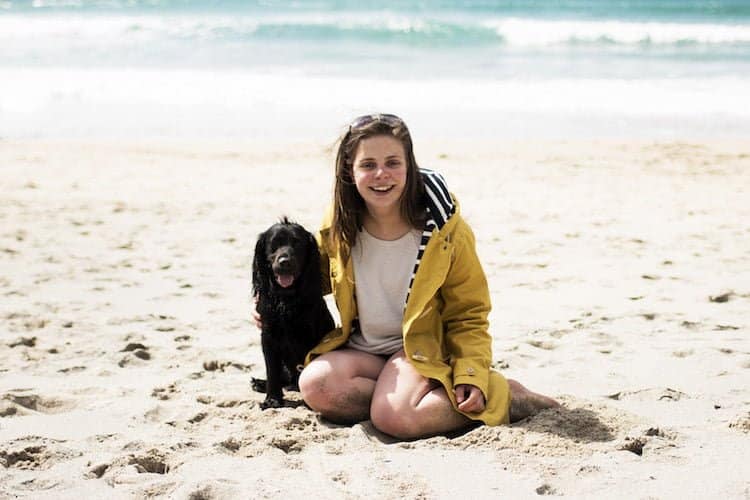
Hattie Day, a pet photographer and blogger from Cornwall and Woody
“Woody helps with my ME or Chronic Fatigue Syndrome in many ways. He gives me a reason to get up in the morning and if I don’t, he’ll come and pester me until we go out for our walk!
“Owning him also gives me a set routine and someone to be responsible and accountable for. In fact he gave me the courage to become a freelancer and start my blog and website The Cornish Dog in the first place.
“Woody is also an incredible companion. ME can be incredibly lonely, not only because people don’t understand it but also because when it’s bad, I’m confined to my house.
“When it flares up I’m unable to walk or talk, so having Woody to cuddle really helps. He understands when I’m ill and loves a cuddle. When I’m stressed it’s great to get outside on a walk with Woody.
“I’ve also met so many other dog owners through having Woody and it’s great to have a little community where I can share my stresses. Whether that’s work, relationships or even the worries that come with owning a dog.
“Through walking Woody I’ve also met a number of people with ME or similar conditions like Fibromyalgia, depression and anxiety and having that support from people you barely know, owners I meet by chance a couple of times a month for example is so heartwarming.”
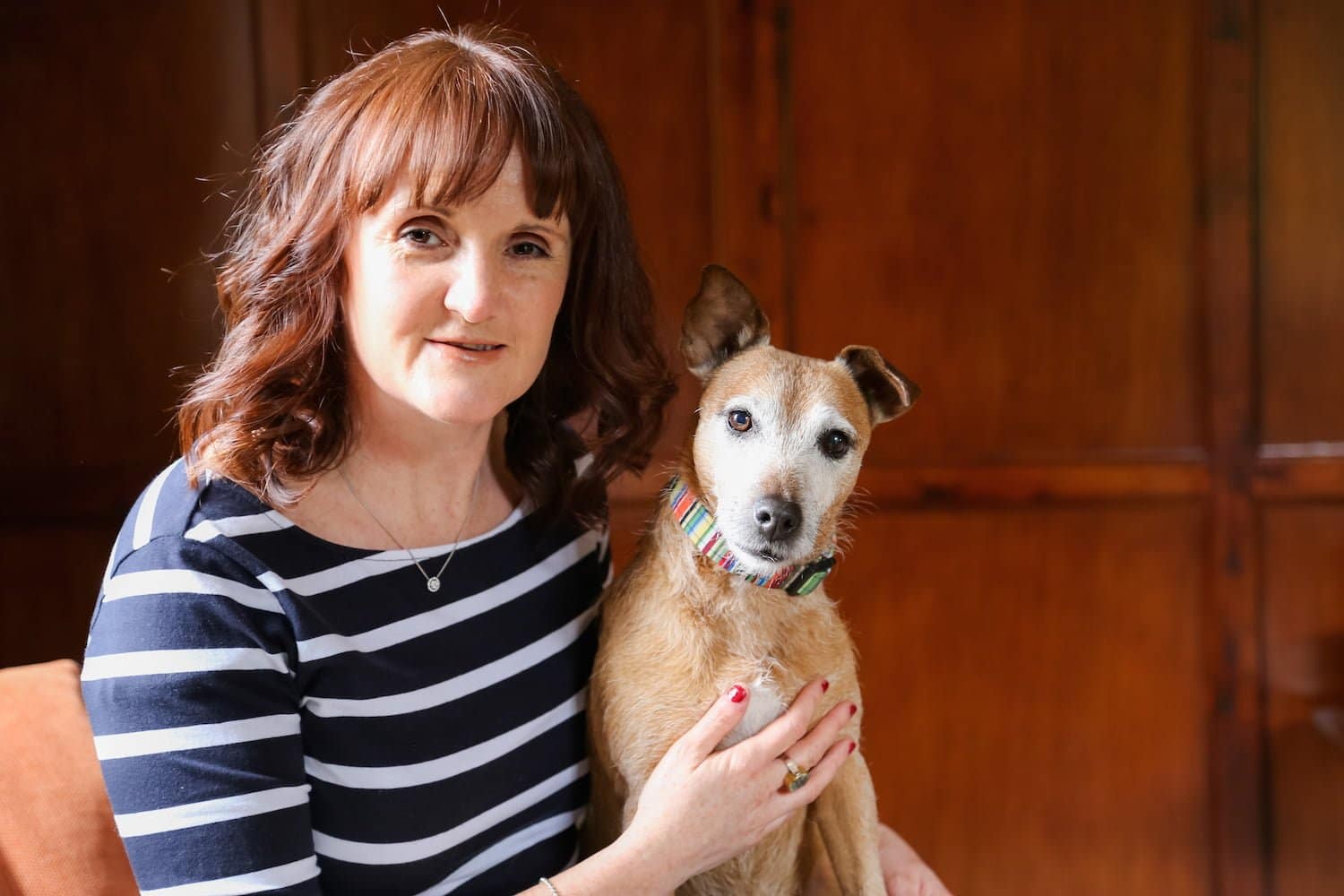
Me and Daisy!
“Daisy came to live with me in 2009 when I was 33. I was freelancing for National newspapers and lived on my own.
“Most of my friends were married; many with children, or settling down, getting engaged and planning their weddings.
“I was single and while I was very happy for them, I struggled emotionally. Every disastrous date or failed romance chipped away at my confidence and I felt happiness was so far out of my reach.
“I don’t think I was depressed – I spoke to a counsellor friend and read more self help books than you could shake a stick at – but I was certainly lonely.
“Having Daisy was a huge comfort. She was full of energy so we’d go for long walks and runs, and on days when I just wanted to get away from it all that’s what we did.
“When I did go on dates, if they didn’t make enough of a fuss of Daisy they were out of the door. She helped me find the right man! (BTW if you’re single and reading this, Dr Karin Anderson’s Single Is the New Black was amazing too.)
“My working day was shaped around when she needed to walk. It helped me de-stress and if I had a feature to write and was struggling, I’d work it out while walking her.
“I couldn’t leave her for longer than a few hours and I didn’t want to either. I started doing more pet focused stories – they led to this blog.
“In January 2016, I lost my dad and Daisy was there for all my family. She knew when we needed a cuddle and her just being with us was a huge comfort.
“Daisy gave so much to me in the nine years we shared. Having a dog was a coping strategy in my low times and I feel I’m stronger and healthier emotionally because of that.”
If you enjoyed this post, you might like to read our full interview with Cate, owner of Doug the Pug Therapy Dog, How Zante Stray Olaf became a Pets as Therapy Dog, or Six things I learned at Purina’s Better With Pets.

